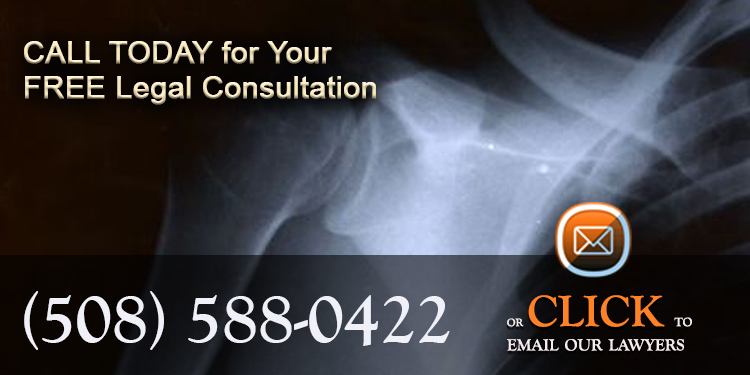Maxillary Fracture (Broken Upper Jaw)
Maxillary Fracture (Broken Upper Jaw)
Information About Fractures to the Upper Jaw
The maxilla connects the dental occlusal plane inferiority and cranial base superiorly, ultimately joining with the nasal cavity, oral cavity, and various other important bodily structures. When these bones are fractured, the injury can be life-threatening and disfiguring. These types of fractures often result from car accidents, as well as falls and other incidents involving high-energy blunt force.
Types of Maxillary Fractures and Diagnosis
The location, energy, and direction of the impact as well as the characteristics of the trauma determine what injuries will result. There are two types of maxillary/non-Le Fort maxillary fractures that are rather common. They are characterized by small, isolated fracture segments and several discrete vertical fractures through various horizontal bony supports. There are three predominant types of Le Fort maxillary fractures and injuries:
- Le Fort I/horizontal: Extends from the nasal septum to the lateral pyriform rims, horizontally above the teeth apices, crossing below the zygomaticomaxillary and pterygomaxillary junctions to interrupt the pterygoid plates; results from force directed downward on maxillary alveolar
- Le Fort II/pyramidal: Extends from the nasal bridge at or below nasofrontal suture, through frontal processes of maxilla, inferolaterally through lacrimal bones, inferior orbital floor and rim through or near the inferior orbital foramen and inferiorly through the anterior wall of the maxillary sinus; under the zygoma, across the pterygomaxillary fissure, through the pterygoid plates
- Le Fort III/transverse (craniofacial dysjunctions): Start at nasofrontal and frontomaxillary sutures extend posteriorly along medial wall of orbit through nasolacrimal groove and ethmoid bones; continues along floor of orbit along inferior orbital fissure; continues superolaterally through lateral orbital wall, zygomaticofrontal junction, and zygomatic arch.
Fracture lines sometimes diverge from these prescribed pathways and can result in atypical fractures, such as mixed-type or unilateral fractures. High-energy force may also lead to fractures of the mandible, cranium, or both. The so-called “pan-face” deformity often occurs after extensive Le Fort II or III fractures, resulting in an anterior open bite deformity, and sometimes even a compromise of the upper airway in severe cases.
A physical examination should include a thorough inquiry into the mechanism of the injury in order to arrive at a proper diagnosis; specifically, finding out the location, direction, and magnitude of the impact and cause of the injury. There should also be concern surrounding other possible concomitant injuries, especially loss of consciousness and intracranial injuries. First and foremost, any life-threatening injuries must be addressed, especially any injuries involving the airway and/or intracranial injuries.
Upper Jaw Fracture Injury Attorneys
These serious injuries that can be incurred in an auto accident can cause severe pain and limit your ability to return to your normal life. No matter where you are, our attorneys are here to help. Contact our office for a free case review and consultation today, and we will get you started on the road to recovery.
Our Experienced Massachusetts Injury Attorneys are Here to Help You. Free consultation. No obligation. No fee unless we recover for you.
If you have suffered from a broken upper jaw, or any other facial injury due to someone elses’ carelessness or actions, we are just a phone call away. Contact our law offices to for a free consultation and find out how we can help.
For your free, no-obligation case review and consultation call our law firm today at (508) 588-0422 and you will have taken your first step towards getting fair compensation for your injuries or for the loss of a loved one. You can also click here to use our Free Case Evaluation Form.
We offer a free, no-obligation legal consultation to help you understand your rights and the value of your case.
Our personal injury trial lawyers handle all types of accident claims including those involving Maxillary Fracture accidents and Upper Jaw Injuries, throughout all of Massachusetts including, but not limited to, those in the following counties, cities and towns: Plymouth County including Brockton, Plymouth, Bridgewater, Marshfield, Hingham, Duxbury, Wareham, Abington, Rockland, Whitman, Hanson, Holbrook, Middleborough; Norfolk County including Quincy, Stoughton, Dedham, Weymouth, Braintree, Avon, Holbrook, Randolph, Canton, Sharon, Brookline, Franklin; Bristol County including New Bedford, Fall River, Taunton, Attleboro, Mansfield, Easton, Raynham, Lakeville, Norton; Cape Cod, Falmouth, Barnstable and the Greater Boston area including Cambridge, Somerville, Medford, Everett, Lynn, Revere, Dorchester, Roxbury.

